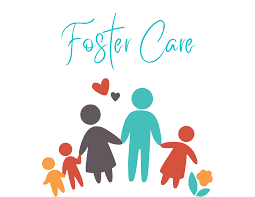Every child deserves a loving, supportive, and safe environment in which to grow and thrive. Unfortunately, not all children experience this from the start. For thousands of children in the United States and beyond, foster care provides a temporary home where safety and stability can be found. Foster parents play a crucial role in this system, offering children not just a safe home but also hope, love, and a brighter future.
This blog post will explore why every child deserves a safe home, the critical role of foster parents, and how fostering can transform both children’s lives and the lives of those who open their hearts and homes. By understanding the foster care system, the impact of foster parenting, and the needs of children in care, we can collectively work towards ensuring every child grows up in a safe, nurturing environment.
The Foster Care System in the U.S.: A Lifeline for Vulnerable Children
The foster care system exists to provide a safe space for children who are unable to remain with their biological families. Whether due to neglect, abuse, or other challenging circumstances, these children need temporary care while efforts are made to reunify them with their families or find a permanent placement through adoption.
As of 2023, there are approximately 400,000 children in foster care in the U.S., with about 120,000 of these children eligible for adoption. The system serves as a lifeline for vulnerable children, ensuring they are safe and their needs are met during one of the most traumatic periods of their lives. However, the system cannot function effectively without the commitment and dedication of foster parents.
What is Foster Care?
Foster care refers to a system in which children who cannot live with their biological parents due to safety concerns are placed with foster families, group homes, or other temporary arrangements. These children may stay in foster care for a few days, months, or even years, depending on their individual situations.
Foster parents provide care, support, and guidance to these children while working alongside child welfare agencies and caseworkers. The ultimate goal is to either reunite the children with their families or find them permanent, loving homes through adoption.
The Critical Role of Foster Parents
Foster parents are the backbone of the foster care system. They provide children with a stable and supportive environment while they navigate the uncertainty of being separated from their biological families. The role of foster parents extends far beyond providing basic needs like food and shelter. Foster parents play a pivotal part in the emotional and psychological healing process of children who have often endured trauma.
Providing Stability and Safety
Children entering foster care have often experienced instability in their lives. Whether it’s moving between different homes or enduring neglect and abuse, their sense of safety is often compromised. Foster parents provide the stability these children desperately need. A safe, nurturing environment can help them begin to heal from the emotional wounds caused by their previous circumstances.
Foster parents are also responsible for maintaining routines, ensuring the child’s attendance at school, and providing a structure that may have been lacking in the child’s life. These actions contribute to the child’s sense of safety and trust, which are crucial to their development.
Emotional Support and Healing
Children in foster care often struggle with feelings of abandonment, confusion, and grief. Many have been removed from their homes due to traumatic experiences, leaving them emotionally vulnerable. Foster parents play an essential role in helping these children heal by offering emotional support, compassion, and patience.
Foster parents serve as role models, showing children that they are valued, loved, and capable of achieving a brighter future. Many foster parents also work with therapists and social workers to ensure the emotional and psychological needs of the child are met.
Encouraging Academic and Personal Growth
Foster children frequently face academic challenges due to their disrupted home lives. Foster parents can provide academic support by ensuring the child stays on track in school, attends extracurricular activities, and maintains a healthy routine. Education is a critical factor in breaking the cycle of poverty and trauma that many foster children experience.
Additionally, foster parents encourage personal growth by exposing children to new experiences, hobbies, and skills. This helps children develop self-confidence and a sense of purpose, empowering them to succeed both academically and personally.
Why Every Child Deserves a Safe Home
A child’s home environment directly impacts their overall well-being, mental health, and future success. For children in foster care, a safe home provides the foundation needed to heal from past traumas and thrive. Every child deserves a safe home where they are treated with love, respect, and dignity.
The Impact of Unsafe Homes
When a child grows up in an unsafe or unstable home, the effects can be devastating. Abuse, neglect, and trauma can lead to long-term mental health issues, difficulty forming healthy relationships, and challenges in succeeding academically or professionally.
Children in unsafe homes often face high levels of stress, anxiety, and fear, which can hinder their development. If these children are not removed from these environments and placed in safe homes, they are at a much higher risk of engaging in criminal activity, struggling with substance abuse, and experiencing mental health disorders later in life.
The Importance of Early Intervention
Early intervention is key to helping children in unsafe homes. By identifying at-risk children early and placing them with loving foster families, we can prevent many of the negative outcomes associated with neglect and abuse. Foster parents play a critical role in this process by offering children a safe, supportive space where they can begin to rebuild their lives.
Becoming a Foster Parent: A Rewarding Journey
Becoming a foster parent is one of the most rewarding decisions an individual or family can make. While fostering can be challenging, the impact that foster parents have on the lives of children is immeasurable. By providing a safe home, emotional support, and stability, foster parents help children heal, grow, and thrive.
The Steps to Becoming a Foster Parent
If you’re considering becoming a foster parent, there are several steps involved in the process:
- Initial Inquiry: Contact your local child welfare agency to express your interest in fostering.
- Training and Certification: Prospective foster parents must complete training to understand the responsibilities and challenges of fostering. Each state has its own certification process.
- Home Study: A home study will be conducted to ensure your home is safe and suitable for a foster child.
- Matching: Once approved, the agency will work to match you with a child in need of a safe home.
- Support and Supervision: After a child is placed with you, you will receive ongoing support and supervision from your local child welfare agency.
The Reward of Changing a Child’s Life
While the process of becoming a foster parent may seem daunting, the rewards are immense. Foster parents have the unique opportunity to make a lasting difference in a child’s life. The love, care, and support you provide will help shape a child’s future and give them hope for a better life.
Conclusion: Foster Care is a Collective Responsibility
At CPS – Child Safety Advocates, we believe that every child deserves a safe and loving home. Foster parents are vital in making this a reality. By stepping up to provide care, stability, and love, foster parents help transform lives and build stronger communities.
If you are facing challenges or considering becoming a foster parent, we are here to guide you through every step of the process. Together, we can help ensure that every child has the opportunity to grow up in a safe, supportive home. Whether through fostering or supporting the system, we all have a role to play in protecting our children.




